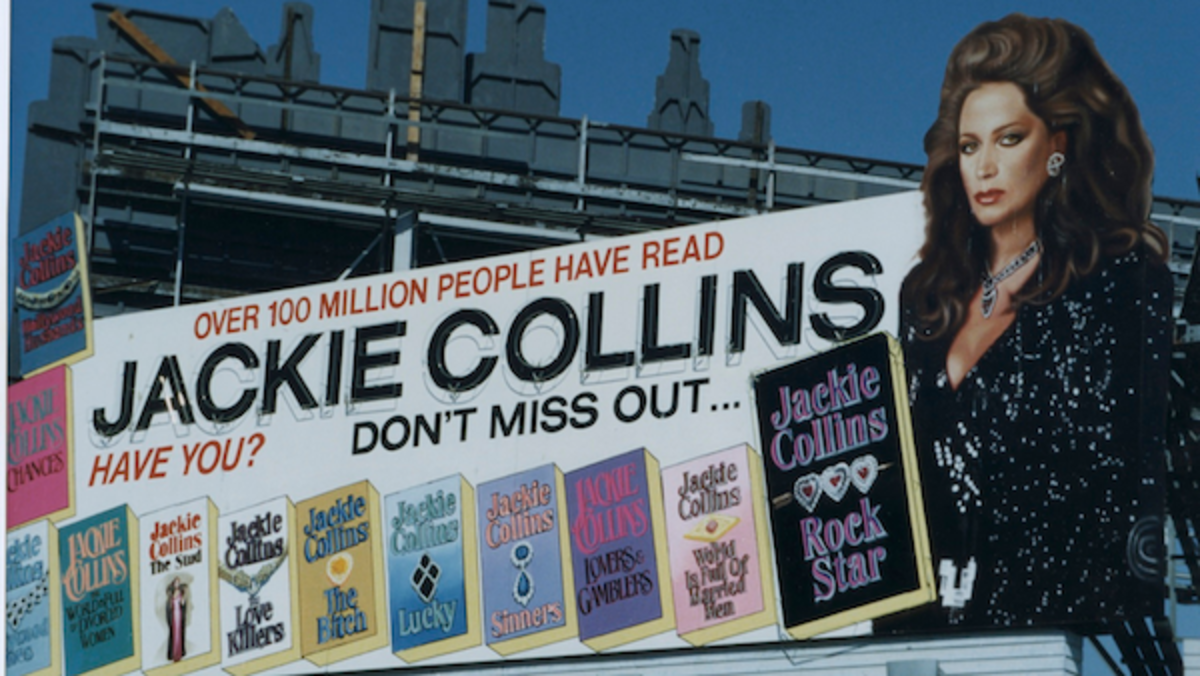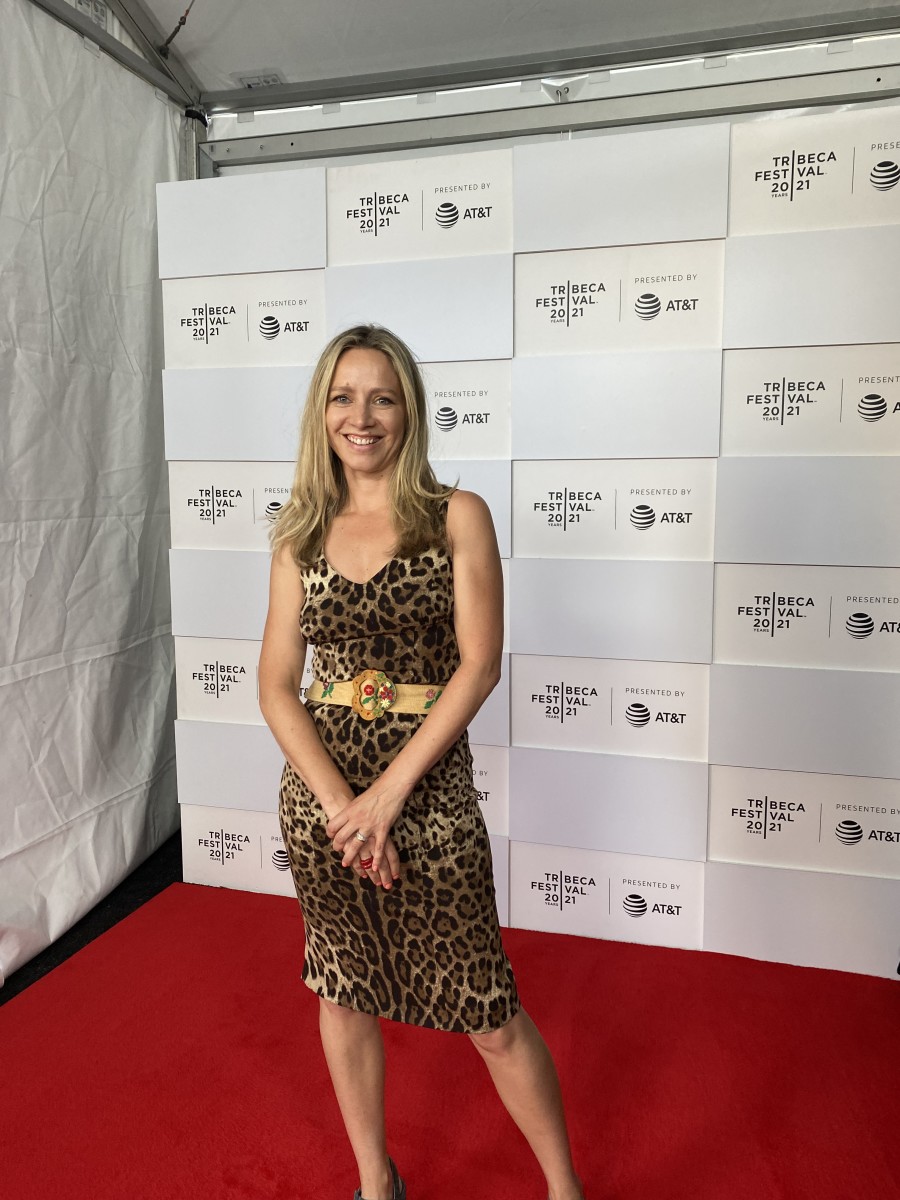“I loved the idea of making a film that could intertwine fact and fictional storytelling, and through the spinning together of the two, arrive at an authentic portrait of a woman who often shared her most private self in her fictional writing.” – Laura Fairrie

Lady Boss: The Jackie Collins Story tells the untold story of the ground-breaking author who sold more than half a billion copies of her 32 novels in more than 40 countries, eight of which have been produced as movies. Narrated by a cast of Collins’ closest friends and family, the film reveals the private struggles of a woman who became an icon of 1980s feminism whilst hiding her personal vulnerability behind a carefully crafted, powerful, public persona.
I had the pleasure to speak with director Laura Fairrie at the Tribeca Film Festival about bringing the Jackie Collins story to the screen, and the surprises she discovered along the way.
Laura Fairrie is a British documentary director whose credits include ‘Spiral’, ‘The Battle for Barking’ and ‘Taking on the Tabloids’. Previously Laura worked as a current affairs journalist and producer in the UK, Northern Ireland, China and America making special reports and documentaries for BBC Newsnight, BBC2, Channel 4 News and Channel 4.
This interview has been edited for content and clarity.
KOUGUELL: How did this film evolve?
FAIRRIE: Ipreviously made films about tough subjects and in quite dangerous places and often I felt scared on shoots. I wanted to start making films with female perspectives. I was going into meetings, saying I wanted to make a film about a fabulous woman, and I don’t know who that is. Producer John Battsek and I had done another project together before, and he said, strange you should say that because I just had this project land on my desk; Collins’s daughters had contacted me. I said amazing, she was my sex education teacher; I had read her books as a teenager, hid her books under my desk in school. I was excited to learn who the persona was behind her work, what drove this woman to write the books she did, and what drove her to be the businesswoman she was.
KOUGUELL: You were interested in making a film that could intertwine fact and fictional storytelling. Please delve into that more.
FAIRRIE: I was interested in making a film about Jackie Collins that was really surprising and not superficial. I was excited by the idea of being able to intertwine her fictional writing with her factual story and arrive at a deeper understanding of who she was through the books that she wrote. Once I started reading her books again, I discovered that there was so much of her own life and experiences and that her authentic voice was actually in her fictional writing.
[INTERVIEW: “Acasa, My Home” Documentary Filmmaker Radu Ciorniciuc]
KOUGUELL: How did you establish trust with your interviewees?
FAIRRIE: I’m always genuine in my motivations for making my films so the conversations I had with people were always very upfront from the start. To do her justice we really needed to show Jackie in all her vulnerabilities and complexities and show the side of her in her own life that she didn’t often share with people. Her friends and colleagues all really loved and respected her and once I spoke to them about it, they all pretty much signed up for it and wanted to tell their version about Jackie.
KOUGUELL: Do you work from a treatment or outline? What’s your process?

FAIRRIE: I start with creative ideas, and a vision and tone of the film I want to make. I’ll often watch movies for reference and for this film I watched , I Tonya, Joy, and To Die For. There were things in those films that were useful for me, and a creative starting point. I loved that idea of narrative films borrowing from documentaries and documentary films borrowing from narrative films.
There were 4,000 pieces of archives, not to mention Jackie’s fictional books and her letters, diaries, Jackie kept everything — photographs, home video footage, there was a huge amount of material to extract a story from. I sat down with her daughters and went through Jackie’s life from beginning to end. From that I wrote a story beats document so I knew when I went into the interviews, I could be specific about what I needed from each person.
I had this idea that in its simplest form, it was the story of a storyteller I would always say to the cast of characters who were essentially the narrators of the film, please just tell stories, let’s make these about storytelling, tell me your tales about Jackie.
[INTERVIEW: ‘Son of the South’ Writer/Director Barry Alexander Brown]
KOUGUELL: There is fascinating archival footage included in the film. Let’s talk about how you gained access to this and how you approached choosing what to include.
FAIRRIE: Jackie’sdaughters gave me access. When Jackie died, they couldn’t believe what she left behind. For them it felt like she left behind the untold story she hadn’t managed to tell in her own life. They felt they wanted to tell it for her. They were incredible about giving me access to the most personal and private information and trusting me with it. It was a beautiful process working with them.
KOUGUELL: Advice for documentary filmmakers
FAIRRIE: Follow your instincts. Don’t be disheartened starting at the bottom and working your way up. You can shoot your own films. I started off with just me and a camera, I did all the sound, and I would immerse myself in stories. I loved the freedom of that, and I learned so much about storytelling and about connecting with people from all walks of life in all places.
Lady Boss: The Jackie Collins Story airs on CNN Films in late June and on BBC Two and BBC iPlayer later this year.